I had two patients in a row the other day that had essentially the same question. I take this as a sign that I need to do an article on that subject. Both patients had 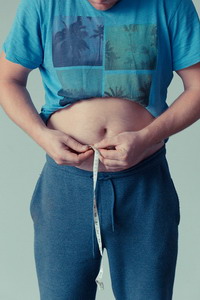 tried to do a keto diet in the past and had gotten good results, but had been unable to keep the diet going. Both knew they needed a
keto lifestyle to address their health issues. But how to sustain the diet long term appeared to be their difficulty. With further questioning I could see that both of them had fallen into some basic misconceptions about what a keto lifestyle looked like because they had read some keto diet book or other that only presented a small understanding of the bigger picture.
tried to do a keto diet in the past and had gotten good results, but had been unable to keep the diet going. Both knew they needed a
keto lifestyle to address their health issues. But how to sustain the diet long term appeared to be their difficulty. With further questioning I could see that both of them had fallen into some basic misconceptions about what a keto lifestyle looked like because they had read some keto diet book or other that only presented a small understanding of the bigger picture.
Since I have been living a keto lifestyle strictly for over 15 years and intermittent keto living over the past 50 years, I have a fair amount of experience with this world. So let's address some of these misconceptions that make living the keto life more difficult.
#1 Do I really have to eat all that much fat?
This one is really interesting. Because the goal of a keto lifestyle is to switch your energy system in the body over to burning ketones from fat instead of sugar from carbs.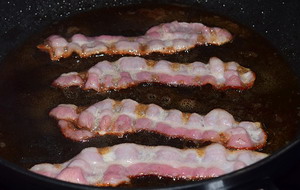 Sugars and carbs are very inflammatory, so switching over to burning ketones supports the entire body. Folks who write diet books
all understand that no one wants to do a diet. So the basic goal in writing a diet book is to convince people that omitting just one food group will cause them to lose weight and that this omission will be okay because of all the wonderful things you can still eat from the remaining food groups that are still allowed. This is all bogus of course, but people have been falling for it for over a century. The keto diet revolution taught this by saying that omitting carbs and sugar
will cause you to lose weight, but that you will feel okay because of all the great high-fat foods you can eat – like bacon, cheese, and butter. Like all diets, the change of basic foods temporarily disrupts gut homeostasis and established inflammation pathways so some initial amount of weight will be lost, followed by diminishing results thereafter.
Sugars and carbs are very inflammatory, so switching over to burning ketones supports the entire body. Folks who write diet books
all understand that no one wants to do a diet. So the basic goal in writing a diet book is to convince people that omitting just one food group will cause them to lose weight and that this omission will be okay because of all the wonderful things you can still eat from the remaining food groups that are still allowed. This is all bogus of course, but people have been falling for it for over a century. The keto diet revolution taught this by saying that omitting carbs and sugar
will cause you to lose weight, but that you will feel okay because of all the great high-fat foods you can eat – like bacon, cheese, and butter. Like all diets, the change of basic foods temporarily disrupts gut homeostasis and established inflammation pathways so some initial amount of weight will be lost, followed by diminishing results thereafter.
Here is the reality – no you don't have to eat any fat at all on a ketogenic diet. In fact, every gram of fat you consume is a gram of your own body fat that you will not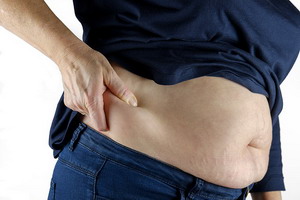 burn. Yes, I know all about the supposed metabolic burn changes that this diet or that is supposed to produce. Reality
– these differences amount to a few percent at best. Even when you go into complete fasting mode your metabolism only decreases by 10%. People eat all that fat on keto diets because they like fat, not because it helps them in any way; quite the opposite. What it does do is make it look like you are producing a lot of ketones when you pee on your ketone stick or do your breath test. This may be useful if you are an athlete and are going to be doing a lot of heavy
endurance training. For the rest of us, it serves no purpose at all. Usually, the body makes just enough ketones from our body fat to meet our survival needs. There will probably not be extra around to pee out onto a stick.
burn. Yes, I know all about the supposed metabolic burn changes that this diet or that is supposed to produce. Reality
– these differences amount to a few percent at best. Even when you go into complete fasting mode your metabolism only decreases by 10%. People eat all that fat on keto diets because they like fat, not because it helps them in any way; quite the opposite. What it does do is make it look like you are producing a lot of ketones when you pee on your ketone stick or do your breath test. This may be useful if you are an athlete and are going to be doing a lot of heavy
endurance training. For the rest of us, it serves no purpose at all. Usually, the body makes just enough ketones from our body fat to meet our survival needs. There will probably not be extra around to pee out onto a stick.
#2 How much protein should I eat?
That really depends upon the quality of the protein you are eating. The body needs a very specific ratio of the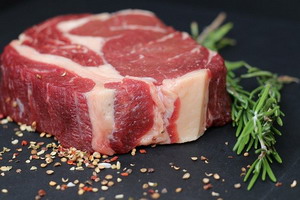 different essential amino acids in proteins. If you are getting that very specific ratio you may only need 30 to 40 grams of protein. All the extra amino acids from the broken down protein just
get converted into sugar, so not helpful for holding the body in ketosis. I have experienced times where I could not get into ketosis because I was eating too much protein. Be aware of this if you are trying to go carnivore. Most of that extra protein is just wasted because your body does not store protein for later. That is not a problem if you are an athlete and are burning up that extra carb load from protein in an anaerobic exercise like weight lifting. But if
you are trying to lose weight it can be an issue.
different essential amino acids in proteins. If you are getting that very specific ratio you may only need 30 to 40 grams of protein. All the extra amino acids from the broken down protein just
get converted into sugar, so not helpful for holding the body in ketosis. I have experienced times where I could not get into ketosis because I was eating too much protein. Be aware of this if you are trying to go carnivore. Most of that extra protein is just wasted because your body does not store protein for later. That is not a problem if you are an athlete and are burning up that extra carb load from protein in an anaerobic exercise like weight lifting. But if
you are trying to lose weight it can be an issue.
#3 Can I ever eat carbs?
There are two phases of the keto diet – induction and fat adapted. In the induction phase, the body is gradually turning on the enzyme systems for adapting to using ketones as its major fuel source. This can take from  three weeks to a couple of months. During this phase, any carb load (meaning
eating carbs or sugar) can shut down the ketosis transition and you have to start all over again. Once your body has fully adapted to burning fats for energy it has a biochemical inertia that keeps systems running even if you have the occasional carb load. How do you know? If you eat carbs and your ketosis indicators stop then you are not fat adapted yet. Sorry, no easy answer. I find that I can eat 50 to 60 grams of carb without shutting down my ketosis state
occasionally – not all the time, but a couple of times a week. If I eat carbs several days in a row I will shut down and have to start up all over again.
three weeks to a couple of months. During this phase, any carb load (meaning
eating carbs or sugar) can shut down the ketosis transition and you have to start all over again. Once your body has fully adapted to burning fats for energy it has a biochemical inertia that keeps systems running even if you have the occasional carb load. How do you know? If you eat carbs and your ketosis indicators stop then you are not fat adapted yet. Sorry, no easy answer. I find that I can eat 50 to 60 grams of carb without shutting down my ketosis state
occasionally – not all the time, but a couple of times a week. If I eat carbs several days in a row I will shut down and have to start up all over again.
#4 How do you stay on a low carb lifestyle?
The trick is to find or create low carb substitutes for most all your favorite foods. It is almost impossible to abandon all your favorite foods just because they are toxic to your health. So the plan is to replace them with low carb 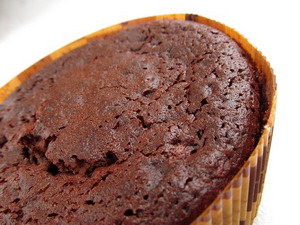 versions that will satisfy your inner child. Back when I started living
this way there was literally nothing out there to do this with. I had to invent everything myself to do this. Now there are thousands of creative people who put up youtube videos on how to create almost anything in a low carb form. It is wonderful. The support is there. There is even a ton of low carb stuff on the grocery store shelves and in health food stores. I used to have to cook everything myself. Now I can grab stuff right off the store
shelves. This is really helpful when you are doing keto for health improvement and inflammation reduction. To actually lose significant weight requires a deeper level of change.
versions that will satisfy your inner child. Back when I started living
this way there was literally nothing out there to do this with. I had to invent everything myself to do this. Now there are thousands of creative people who put up youtube videos on how to create almost anything in a low carb form. It is wonderful. The support is there. There is even a ton of low carb stuff on the grocery store shelves and in health food stores. I used to have to cook everything myself. Now I can grab stuff right off the store
shelves. This is really helpful when you are doing keto for health improvement and inflammation reduction. To actually lose significant weight requires a deeper level of change.
#5 What are the keto fruits and vegetables?
My favorite keto fruits are raspberries, strawberries, blackberries, plums, and to be technically accurate I will 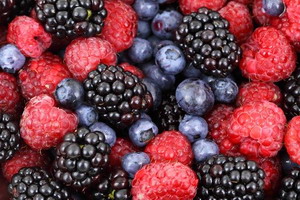 include avocados and olives as they are fruit. Squash/ gourds and tomatoes/eggplants/peppers also fall into this category if you have no lectin issue with them, although winter squash can have too much
carbohydrate in them. Concern about lectins (plant poisons that fight mold and insects) are not part of the keto lifestyle, but they may be big contributors to inflammation and weight.
include avocados and olives as they are fruit. Squash/ gourds and tomatoes/eggplants/peppers also fall into this category if you have no lectin issue with them, although winter squash can have too much
carbohydrate in them. Concern about lectins (plant poisons that fight mold and insects) are not part of the keto lifestyle, but they may be big contributors to inflammation and weight.
Vegetables that are the leaves, flowers, and stems of plants are all good – think of celery, cabbage, cauliflower, and broccoli. Mushrooms are good. Most roots and tubers have way too much starch (carbs) so potatoes are out, even sweet potatoes. The exceptions are jicama, turnips, radishes, and small amounts of carrots and rutabaga. Exotic foods to play with include bamboo shoots, jackfruit, and
sprouts.
Clearly missing from the keto lifestyle are grains, pseudo-grains, and legumes. Certain seeds and nuts are allowed and creative folks have figured out how to use them to recreate most foods they used to eat that were made from grains, like bread. The most popular grain replacements for keto cooking are almond flour, sunflower seed flour, coconut flour, flax meal, and psyllium seed. How well these fruits,
vegetables, and grain replacements work for you will depend on how reactive your body is to the various plant toxins they 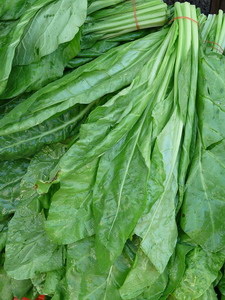 carry. For instance, your leafy greens like spinach and chard are very high in oxalates which can trigger inflammation in some people. Nuts are very high in fat, so eating nut flour bread in abundance can really pack on the pounds. This has
frequently been a problem for me.
carry. For instance, your leafy greens like spinach and chard are very high in oxalates which can trigger inflammation in some people. Nuts are very high in fat, so eating nut flour bread in abundance can really pack on the pounds. This has
frequently been a problem for me.
#6 What about dairy and eggs?
In terms of ketone-based energy, eggs and dairy are just fine. In terms of health and feeling good, you have to consider that eggs and dairy are two of the most allergic prone foods along with wheat, soy, and corn. This is because these five foods have formed the cornerstone of the American processed food diet. The massive exposure we have had to these foods has given them the greatest opportunity for us to
develop sensitivities and allergies to them. American dairy also possesses the problem of breaking down and releasing an opiate drug  called casomorphin. This is highly problematic for many folks. So are dairy and eggs okay? That depends on your body.
called casomorphin. This is highly problematic for many folks. So are dairy and eggs okay? That depends on your body.
What I am trying to get across here is that to make a major dietary change of any sort of work for you, the change has to be tailored to your specific biochemical individuality. A keto lifestyle can be tailored to fit anything from a complete carnivore diet to a vegan diet, and all points in between. If you are shipwrecked and wash up on a desert isle where there is nothing to eat but fresh coconuts, you are
automatically on a keto diet. So there is huge room for tweaking the keto diet to fit your needs. All you really need is to stop eating starches and sugars, and instead get your calories from fats, fibers, and proteins. The health benefits of a keto lifestyle are huge. At the present time, 80% of Americans have metabolic syndrome. This is caused directly by the amount of sugars and carbs we eat. Keto is the answer to this plague.
Take care,
David
We have received the second batch of 20  copies of my book The Balanced Life. For those of you that signed up for the book last year, we have set your copies aside. They are
available in the office for $17.99, and they are also available on Amazon.com
copies of my book The Balanced Life. For those of you that signed up for the book last year, we have set your copies aside. They are
available in the office for $17.99, and they are also available on Amazon.com
New service in Office - free mask sterilization
I was getting creative the other day and decided to create a mask sterilizer for the office. Using a small UVC sterilizing light I mounted into a file box does the job perfectly. Hang the mask from the hook inside the lid and close the lid. Push the timer button one time for 5 minutes of sterilizing light. Be sure the lid is closed as UVC light will damage your eyes and skin. Five minutes will kill
any viruses or bacteria that has collected on your mask. Directions for making your own sterilizer here.
Ellen update:
Most of the Covid 19 cases never have symptoms 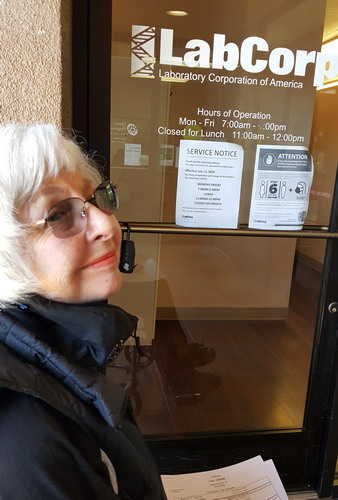 because the people already have natural immunity or their immune system is so strong that they never become sick and never pass on the virus. I was curious whether Ellen or I had already dealt with the virus without knowing. Lab Corp
has a sweet deal for testing for antibodies against Covid that does not require a doctors orders or visit. For only $10 one of their doctors will order the test for you and they bill your insurance for you for the rest. We decided to go for it, so we made an appointment and were in and out in about 10 minutes. In a few days we will find out if we have the
antibodies that make us immune to the virus. Here is a link if you are interested.
because the people already have natural immunity or their immune system is so strong that they never become sick and never pass on the virus. I was curious whether Ellen or I had already dealt with the virus without knowing. Lab Corp
has a sweet deal for testing for antibodies against Covid that does not require a doctors orders or visit. For only $10 one of their doctors will order the test for you and they bill your insurance for you for the rest. We decided to go for it, so we made an appointment and were in and out in about 10 minutes. In a few days we will find out if we have the
antibodies that make us immune to the virus. Here is a link if you are interested.

